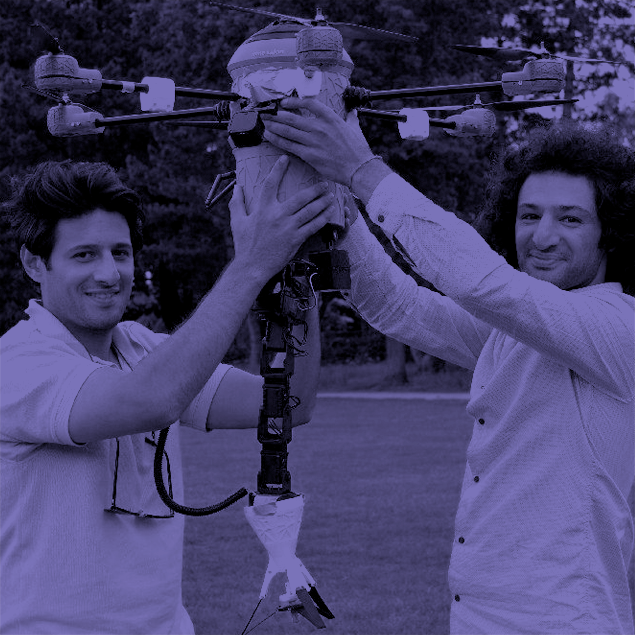
The Design Observer Twenty | Sponsored by IDEO
The Design Observer Twenty is our curated selection of twenty remarkable people, projects, and big ideas solving an urgent social need.
As children, Massoud Hassani and his brother Mahmud had never known a life without danger, an experience captured in this short documentary film, a finalist at the Sundance Film Festival in 2013. As images of children run across the dusty ground, Massoud explains that military forces from many countries had staged and trained there for many years. “When they went home, they left behind explosives and landmines.”
So begins the story of Mine Kafon, a Netherlands-based company that now specializes in drone-enabled landmine detection and removal. But when Massoud was just a child, before he was smuggled out of Afghanistan in 1993 with his mother and brother, the two boys made wind-powered toys from found materials and raced them with their friends across that same desert. It was a future product designer’s early effort to create within deadly limitations imposed on his environment, and his fierce attempt to de-mine his family’s own backyard. “I know mines — I know how to open them; it was every day in our playground,” he said in a 2013 TedX talk.
Massoud’s family resettled in the Netherlands and he began studying design. A 2009 research project on earth, air, fire, and biomimicry informed one of his first products, an eerily beautiful human-sized toy called the Mine Kafon Ball, based on the childhood versions he created in Afghanistan. The device is a wind-powered, GPS-enabled survey, detonation, and mapping tool, light enough to be shipped to communities in need. It operates as a smart version of tumbleweed and can be built for less than $40, a fraction of what traditional removal efforts cost. With bamboo legs capped by air suspension circular feet, it’s heavy enough to set off a mine and strong enough to keep rolling through up to four detonations.
Mine Kafon has evolved, thanks in part to EU funding, into a company that produces an airborne detection system (drone) and a mapping platform that’s faster, cheaper, and safer than current de-mining technologies.
And yet, the landmine problem looms larger than ever.
The United Nations estimates that there may be as many as 100 million unexploded landmines with an equal number stockpiled around the world waiting to be deployed. Children are particularly at risk. There has been little innovation in landmine removal over the decades; the work often falls to people with metal detectors or hand tools. Currently, Ukraine is the most mined country in the world; experts suggest the expanse of infested land is now the size of Uruguay. And global campaigns to ban landmines as a tactic of war have yielded mixed results, and are not as straightforward as they seem.
The Hassanis are among just a handful of innovators who are thinking deeply about restoring communities plagued by landmines to safe, dignified, and prosperous lives. More are desperately needed. “If widely used, the MKD [Mine Kafon Drone] system could clear every landmine in the world within only 10 years,” the company’s mission states. “The inhabitants of such territories will no longer have to worry about the horrors associated with these remnants of war. And it is not only them that will be able to be reintegrated in the larger communities from which they had been separated — their offspring will grow up and flourish in safe environments, without having to suffer the hardships they endured.”
Essay by Ellen McGirt.
